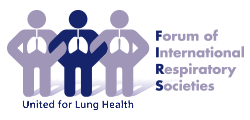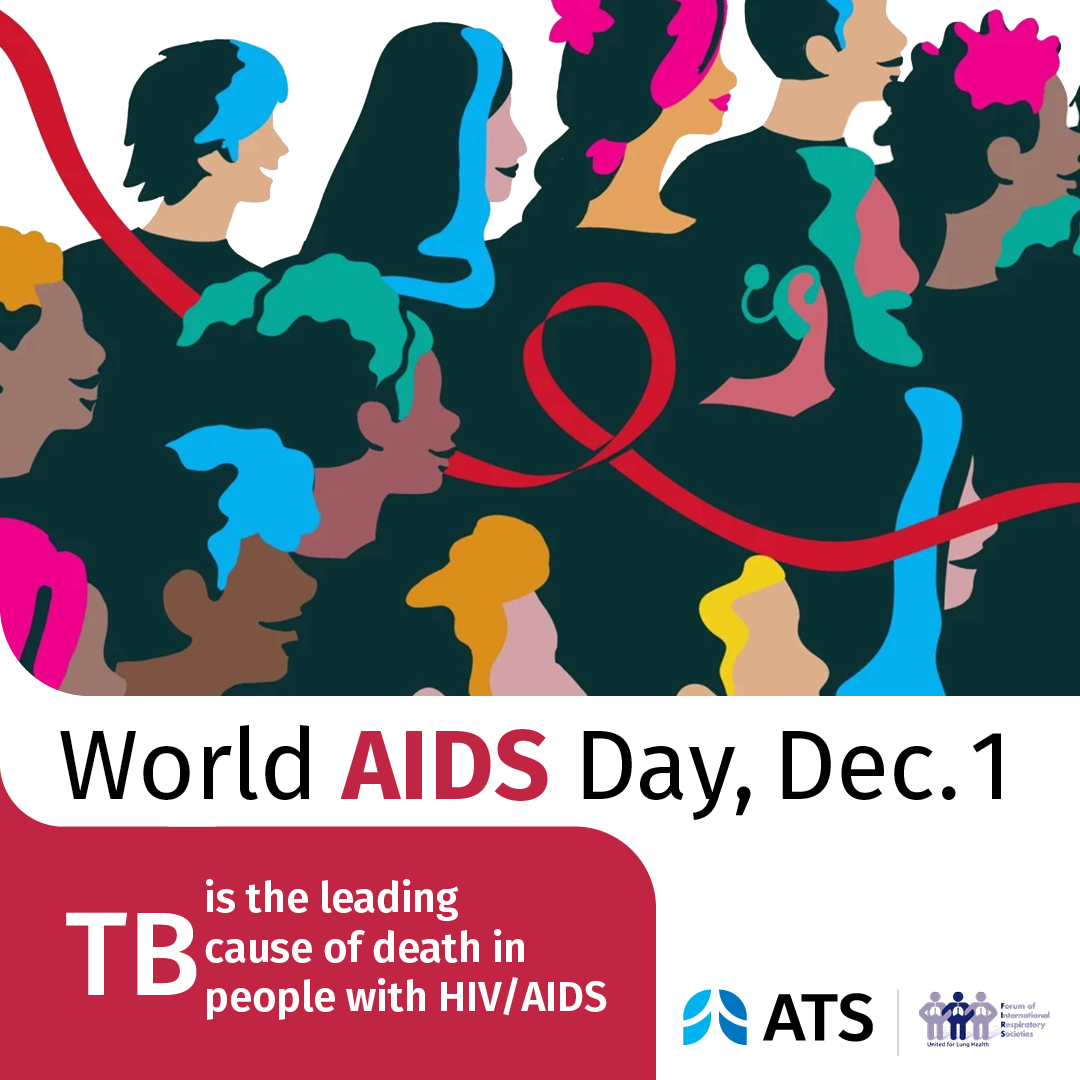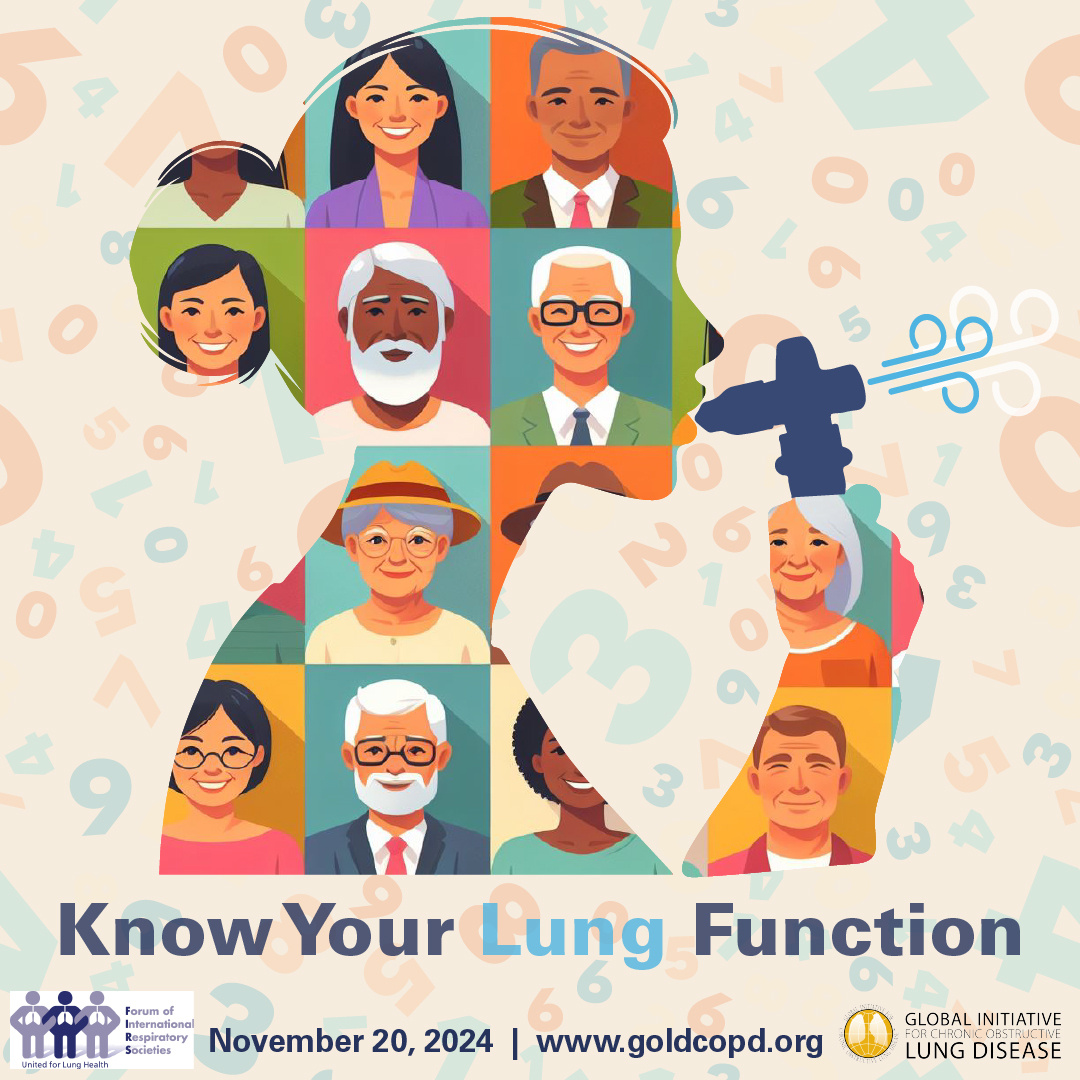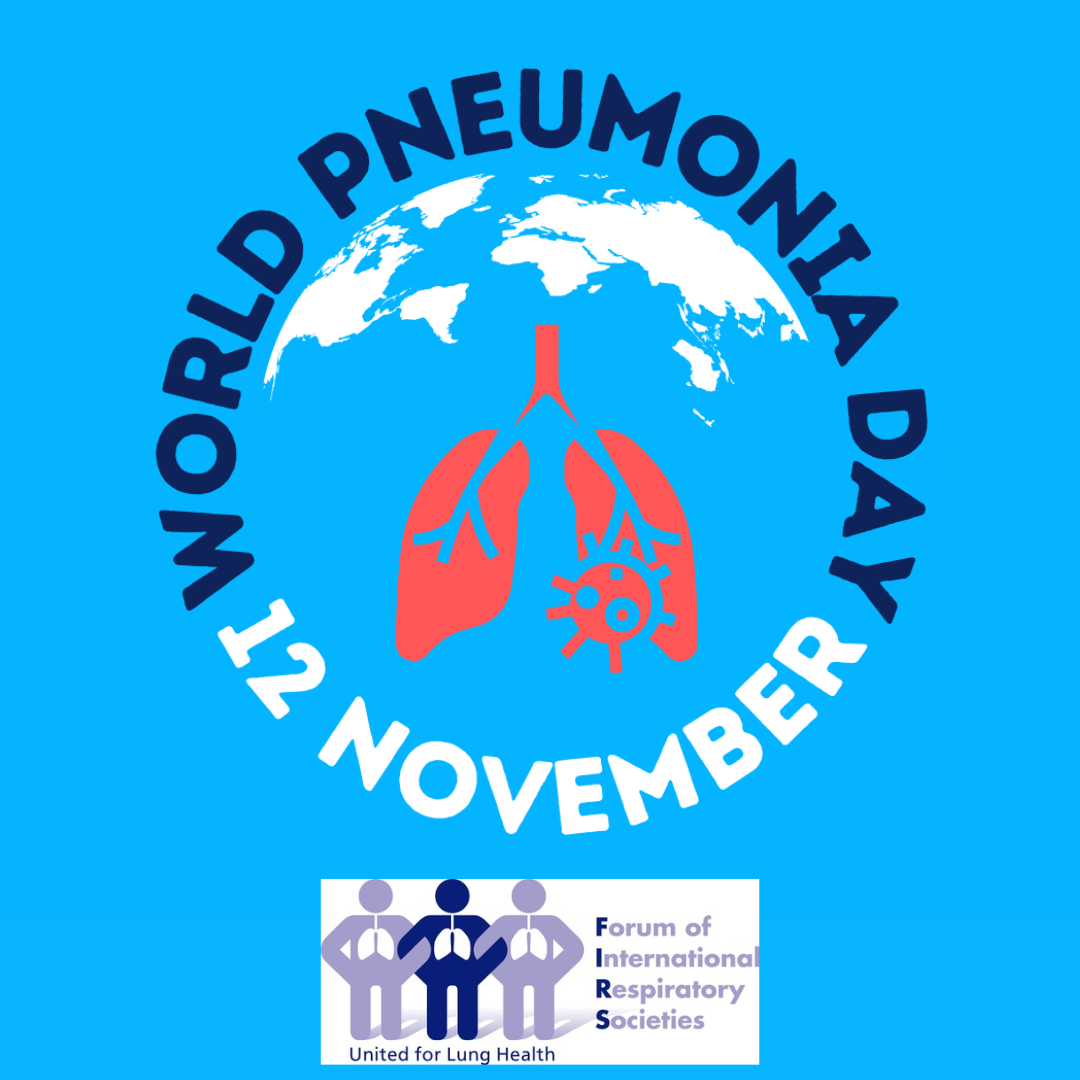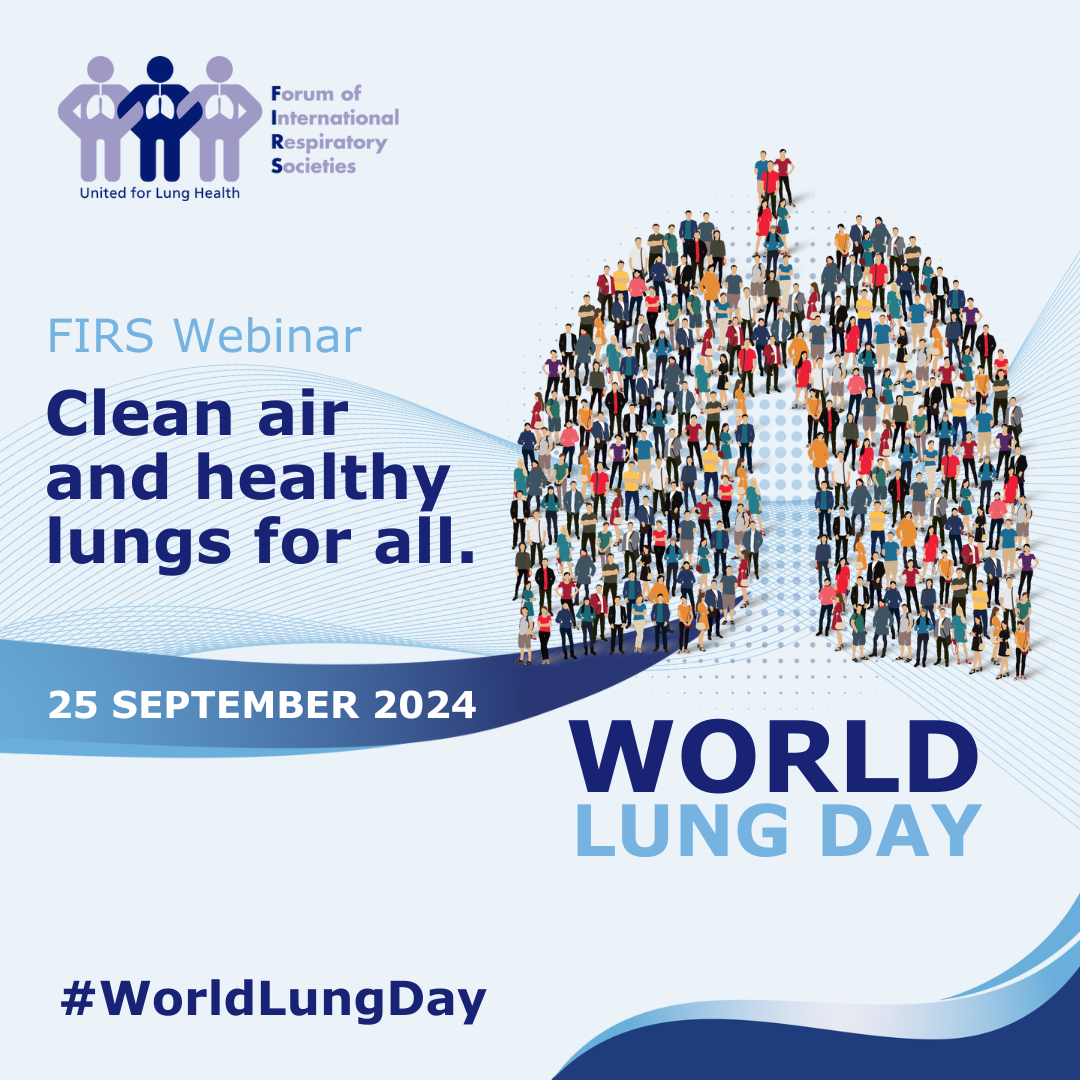Cape Town, Glenview, Lausanne, Montevideo, New York, Paris, Tokyo, Dec. 1, 2017 — In recognition of World AIDS Day, held annually on Dec. 1 each year since 1988, the Forum of International Respiratory Societies (FIRS) is calling on governments, health advocates and non-government organizations to strengthen their response to HIV/AIDS. In 2016 AIDS claimed 1million lives.
FIRS, of which the American Thoracic Society is a founding member, is an organization comprised of the world's leading international respiratory societies working together to improve lung health globally. FIRS supports these efforts through research, patient care and advocacy.
The lungs are commonly involved in AIDS, leading to significant morbidity and mortality. In addition to TB, pulmonary manifestations of AIDS may include pneumocystis jiroveci pneumonia bacterial pneumonia, and pulmonary Kaposi sarcoma, a form of cancer. Globally, AIDS has led to a resurgence of TB in many low- and middle-income countries. It is estimated that people who are infected with HIV are 26 to 31 times more likely to become sick with TB, which is the leading cause of death among people living with HIV. In fact, despite advances in AIDS treatment, TB accounts for one in three AIDS-related deaths, a statistic that illustrates the inexorable link between AIDS and respiratory disease.
World AIDS Day is an important reminder of the continuing worldwide toll of this disease. The World Health Organization estimates that approximately 36.7 million people were living with HIV and 1.8 million were newly infected in 2016. Between 2010 and 2016, the number of new HIV infections declined in most regions of the world, but remained the same in Latin American and climbed by 60 percent in Eastern Europe and central Asia, according to UNAIDS.
"The global response to AIDS has been successful in reducing new HIV infections and HIV-related deaths, but continued investment is needed to reduce the number of deaths related to TB,” said American Thoracic Society President Marc Moss, MD. “Addressing the toll of respiratory deaths, in general, and TB deaths in particular will help in our efforts to realize the UNAIDS goal to end the AIDS epidemic by the year 2030."
FIRS believes a global response to HIV/AIDS can be strengthened by:
- Increasing awareness of the continuing global threat of HIV-related disease.
- Improving the health outcomes of people living with HIV through patient care and research.
- Adequately funding research into improved treatments and treatment strategies.
- Reducing the incidence and severity of HIV-related disease by strengthening mother-to-child transmission prevention programs and increasing the early use of antiretroviral therapy.
- Improving HIV education in at-risk communities to reduce the incidence of new HIV infections.
- Reducing HIV-related health disparities and inequities.
These efforts will build on the progress that has been made in reducing AIDS-related death and morbidity.
About the Forum of International Respiratory Societies (FIRS)
The Forum of International Respiratory Societies(FIRS) is an organization comprised of the world's leading international respiratory societies working together to improve lung health globally: American Thoracic Society, American College of Chest Physicians, Asociación Latinoamericana De Tórax, Asian Pacific Society of Respirology, European Respiratory Society, The International Union Against Tuberculosis and Lung Disease, and the Pan African Thoracic Society. The goal of FIRS is to unify and enhance efforts to improve lung health through the combined work of its more than 70,000 members globally.
